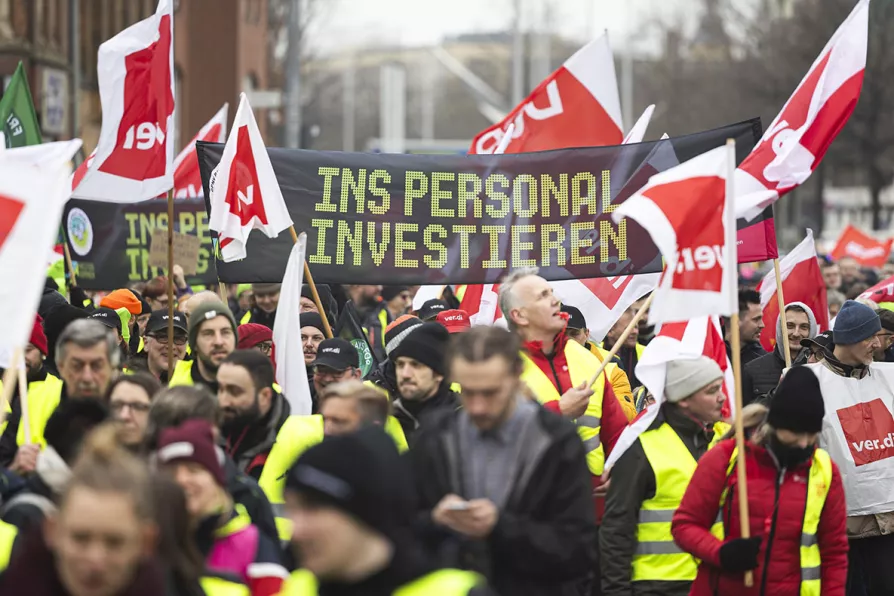Investigators says Ukraine may be behind the attack
Public transport strikes sweep Germany in sign of ‘growing dissatisfaction’

 Participants in a Ver.di demonstration walk through the city centre of Hanover, Germany, February 2, 2024
Participants in a Ver.di demonstration walk through the city centre of Hanover, Germany, February 2, 2024
PUBLIC transport strikes brought buses, trams and even many aircraft to a standstill across most of Germany today.
The ver.di union called a “warning strike” as negotiations on pay and hours continue for about 90,000 transport workers, with those in different regions taking varying spells of strike action.
In Berlin, public transport was shuttered till 10am, while strikes lasted all day in Hamburg, Hannover and Cologne. The only German state not affected was Bavaria, where pay negotiations are not currently taking place.
Similar stories

DAVID CONWAY explains the crisis in the German childcare sector that had driven workers to the streets — a cause that is not being reported alongside the deadly ramming attack on their march

Ben Chacko talks to Bundestag member for the Sahra Wagenknecht Alliance, SEVIM DAGDELEN, about the continuing war in Ukraine, the economic crisis, controversies over immigration, the failings of Germany’s liberalised prostitution policy, and the importance of free speech












